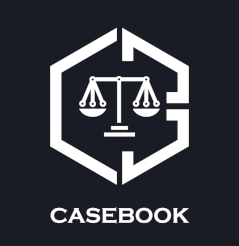
What is the AI Lawyer?
In short, there is no such thing as an AI lawyer. However, the concept of a robot lawyer or ‘robo-lawyer’ has come up from time to time. This, understandably, puts doubt in the minds of existing lawyers and even up and coming lawyers about whether their jobs will be under threat from robots. That is far from the truth.
In recent years, especially since the pandemic, AI has completely revolutionized the way we practice law. Pakistan has been far behind in adopting these new technologies but we want to change that with casebook. In the age of big data, lawyers have to filter through hundreds or thousands of files to prepare for court hearings. In many cases today, technology is at the heart of every litigator’s argument. Whether that’d be social media posts, stories, voice recordings, emails etc. The most common being CCTV footages to catch thieves or, to inspect a crime scene a few minutes before the incident. Anything. Basically, the point is that the influence of technology on case proceedings today cannot be understated even by a hair.
Filtering through case files is never easy. Word documents and PDF files are a hassle and are extremely slow, inaccurate and unreliable at times to provide the information needed. Furthermore, it’s not an ‘intelligent’ software that will connect the dots for lawyers. Manual ways of inspection can usually lead to a loss of important information among documents that can be easily missed in the midst of the plethora of data available.
Casebook is a software specifically designed for situations like these. We provide lawyers with the damning-evidence they so desperately need. The sort of information that can go unnoticed if done manually. Our Intelli-Search is incredibly impressive at doing this. A combination of supervised and unsupervised machine learning provides firms with the most authentic and deeply conceptual analysis of the data available. Casebook has an incredibly user-friendly interface. The dashboard will display all the necessary information needed with the help of widgets and graphics that enhance the understanding.
The easy answer is no. There will never be a scene where a lawyer is arguing for a case or is discussing matters with the client itself. Casebook and AI in the law industry, is only possible with a lawyer operating it. The AI is created to aid the lawyer, not the AI replacing lawyers. Due to machine learning and data analysis capabilities, AI can perform tasks in a short amount of time with the most accurate results one can hope for. However, the client-attorney relationship that exists today cannot be created in this fashion. The decision-making skills, the critical thinking, the rationality, the empathy cannot be fed into a robot. These are qualities that will always remain unique to us humans. When arguing in a court room, humans have a plan and a strategy of how to take things while arguing. Lawyers can think on their feet quickly and that is something that can’t be programmed into a robot (yet).
Casebook basically allows lawyers to do the human aspect of law well. Once the AI is doing all the work in terms of going through documentation and finding evidence, creating visualizations and concluding analysis, the lawyer can focus on their client. After the process on Casebook is complete, the attorney can focus on providing information obtained from the machine learning AI to the client. This improves the experience of both parties as the monotony is removed from the lawyers’ job description and the client will be satisfied with the analysis.
Importance

The importance of machine learning cannot be underestimated in this industry. Moving forward in the next decade, most lawyers will use AI for law and it will become an important aspect quickly. The quicker law firms in Pakistan adopt this technology the better it will be. The early adopters of Casebook will find it easier to appeal to bigger clients, solely because they aren’t afraid of taking a risk and innovating. The probability of a lawyer defending his/her client better in the courtroom because of AI is significantly higher than if the processes were carried out manually.
